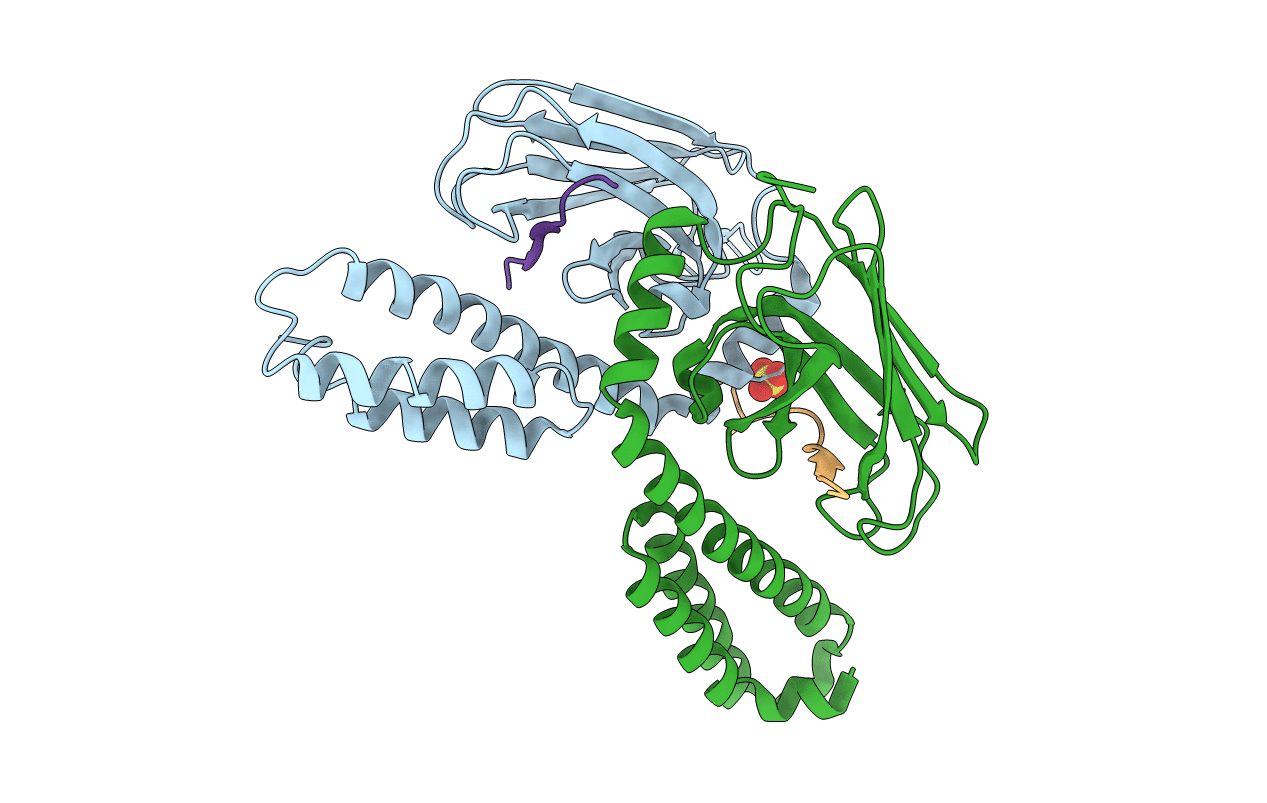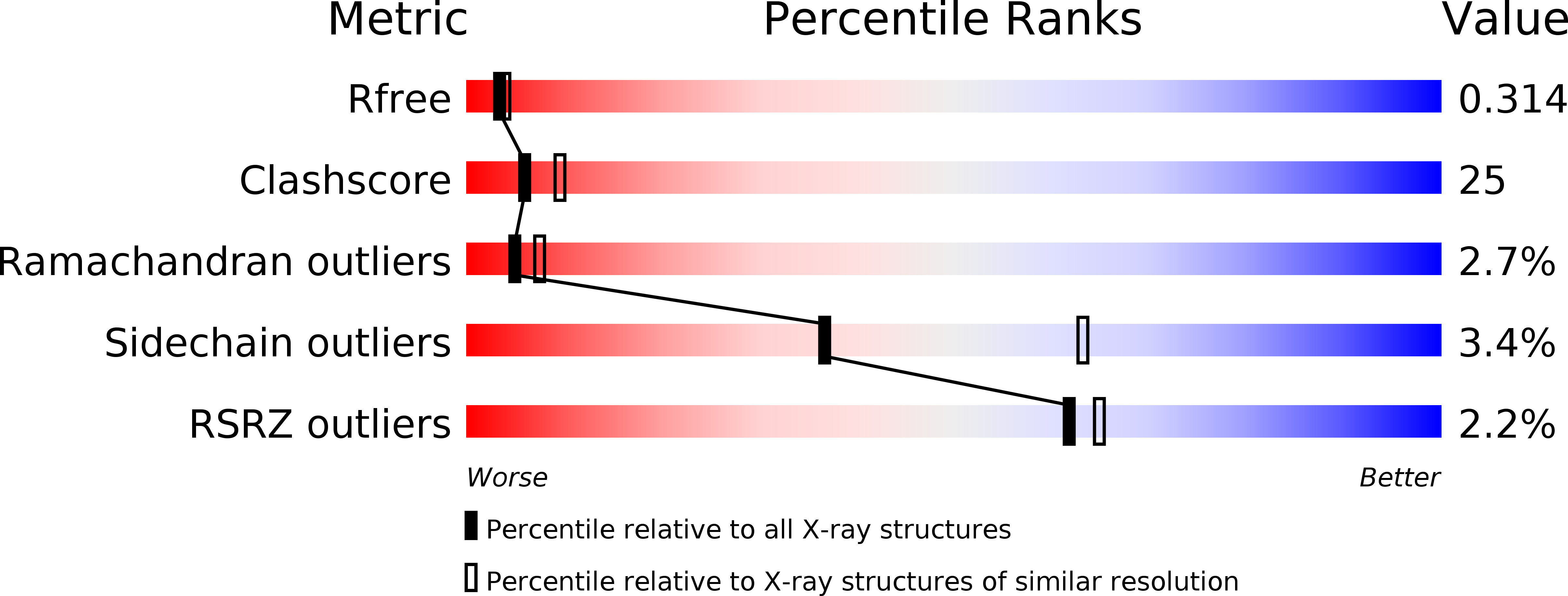
Deposition Date
2008-07-09
Release Date
2009-03-10
Last Version Date
2024-10-16
Entry Detail
PDB ID:
3DPP
Keywords:
Title:
Crystal structure of the substrate binding domain of E. coli DnaK in complex with a long pyrrhocoricin-derived inhibitor peptide (form A)
Biological Source:
Source Organism(s):
Escherichia coli (Taxon ID: 83333)
Expression System(s):
Method Details:
Experimental Method:
Resolution:
2.50 Å
R-Value Free:
0.31
R-Value Work:
0.23
R-Value Observed:
0.24
Space Group:
P 21 21 2


